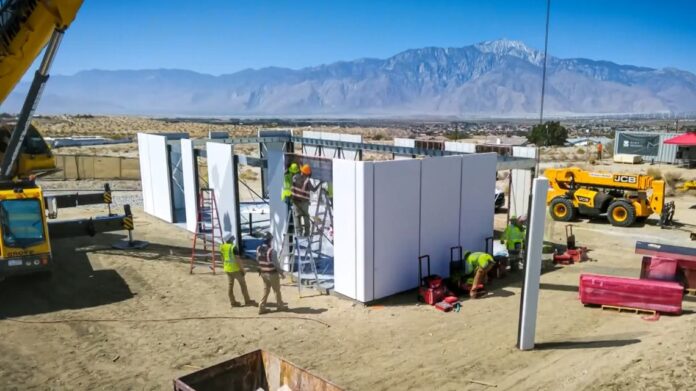California’s housing crisis involves everything from the affordability and availability of homes to homelessness, and there’s not one, simple solution.
However, two Northern California companies are trying to shake things up in the construction industry. Instead of conventional, “stick-built” homes, they are using a 3D printer, something they think will make a big difference in the future.
Emergent 3D, in Redding, and Mighty Buildings, in Oakland, have different approaches to 3D printing homes, but both say — what they’re doing can help mitigate the state’s housing crisis, especially as the technology evolves and their companies grow.
Matthew Gile and Don Ajamian lead Emergent 3D, a Redding-based company that’s just days away from printing its first 3D home.
They’ll be printing what they call the “Wildfire Restoration House,” a 1,200 square-foot, three-bedroom, two-bathroom home that meets all of California’s requirements for building in wildfire-prone areas.
“The windows have to be certain types of windows, the attic ventilation can only be certain types, exterior finish, the way you treat the eaves, the type of roofing, and so on,” Ajamian explained.
“For families that are moving in, that maybe have been traumatized as a result of having to flee for their lives out of their homes and have their homes burned down, to have a concrete home…can give you some peace of mind,” Gile said.
“Today, if the average home is taking eight months to build just because of supply chain issues, perhaps we can get this 3D printed one done in about six months or so,” Ajamian said.
That’s because only the walls are 3D-printed. Much of the home still involves conventional construction.
“We’re still putting conventional wood trusses on top. We’re still putting roofing on there. There’s still electrical and plumbing and cabinets and floor coverings and doors and windows,” Ajamian said. “And all those costs have even gone up over the last couple of years.”
How much does one of these homes cost?
Right now, Ajamian and Gile said, someone will save about 11% compared to a conventionally built home of the same size – and those savings can improve as the technology evolves.
Analysis
This article caught my attention because of the humanitarian efforts it discusses and the ways that 3D printing housing may help. I love how the article considers victims of homelessness due to wildfires. I think disaster relief is often overlooked and applying additive manufacturing as a solution is an interesting concept. As for what can be applied to my thesis project, I know that whatever I design, I want it to serve the needs of others. I also want to consider the cost to construct and the cost of maintenance for such a project. Many people are hesitant to trust 3D printing for a variety of reasons. I want my project to help break through this barrier and make large scale additive manufacturing more available and widely accepted.
Take-Aways
Large-scale 3D printing should consider cost
It should consider the entire lifecycle of its creations – who will maintain it, can it be repaired or recycled if damaged, and how will it effect the environment and the people around it?




